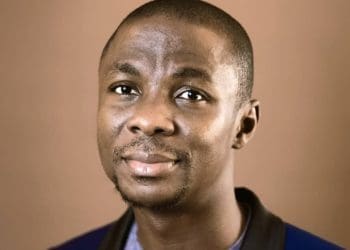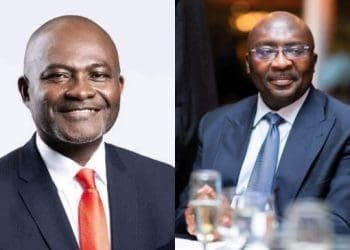Scholarships to study
In the lifetime of a man, he is entitled to a few moments of disappointment and just one instance of public disgrace, except in the case of my basic school classmate, Kojo Obeng Bonzi.
Rarely should a sane person of decent parentage and heritage be made to wear these two instances of personal disgrace on both feet, whether he steps out in London or Kasoa.
OB, as we used to call him in basic school, was often the first person to step out when the headteacher sauntered to the class with the list of school fees defaulters.
When I met him in Tennessee, USA, last month, OB had received ultimatums from his university, warning that if the Government of Ghana did not pay his scholarship, he would be expelled and also deported.
First Enyan-Abaasa Scholar
Over coffee, we both joked about OB’s double jeopardy when we recollected the awful school fees moments in basic school, which deflated his confidence to win over his dream girlfriend.
He joked that his demons had followed him to the USA to haunt him again, except that this time, it will cost him more than a girlfriend.
His education in America, a much bigger dream, may be in ruins if Ghana does not pay his stipends, which are several months in arrears.
OB’s American Dream had kept him awake for nearly 25 years in Enyan-Abaasa until the Scholarship Secretariat woke him up with the offer.
He sighed: ‘Finally, the three witches in my town left my case’. Ironically, he found his Master’s of Forensic Criminology programme may not serve his job interests; it is most suited to police detectives. OB is a banker.
OB is one of many Ghanaians studying on scholarships in universities abroad.
Desperate Ghanaian students have staged protests in some parts of the world to proclaim the fierce urgency of a situation which threatens their livelihoods and peace of mind to study.
Life abroad is already topsy-turvy for naturalised immigrants who are going about their lives as independent people, working full time to earn a living.
With ultimatums hanging over their heads, our young Ghanaian students endure a triple whammy of discomfort in a strange land where there are no uncles to beg their universities on their behalf, or mothers to fast and pray.
Ultimatums and portmanteaus
Student visas allow them only part-time work, leaving them with nothing to pay for rent, bus fare and food.
Just like the economy of people living tight in Ghana, immigrant students in Boston and Cardiff also do 1:0:1 or 0:0.5:1, eating breakfast and dinner while skipping lunch, to sponsor another less salubrious ‘calculation’ tomorrow, where lunch is strategically substituted with light sandwich or any snack the price of bofrot. In very extreme cases, ladies have suffered the indignity of recycling worn-out shoes to be able to afford a textbook.
Their academic record also reflects the 1:0:1 pattern. They come back poor in knowledge and money.
I didn’t have the courage to ask OB how he got his scholarship. People in my line of business suffer a trust deficit crisis.
But OB knows that I know what we all know about how things are done.
He is also confident that I am mature enough to know about Jason’s Law of Corruption, which postulates that when you hear a Ghanaian shouting about corruption at the highest decibels, then he has not benefited from it.
He shuts up when he gets a share. I had to shut up when I saw OBs’ portmanteaus all packed up while homelessness threatened the first Enyan-Abaasa scholar.
This is how scholarships, which used to be for the brilliant and needy, are distributed.
They are “like selling tomatoes in the market”, according to the Minister of Youth Development and Empowerment, George Opare Addo, on Joy FM.
“People go and say, Ah, let me pay GH₵10 or GH₵20”, referencing an investigation by the Fourth Estate.
From independence, “there was no law as to how scholarships are administered”, he adds. Well, a new law is in the works to seal these cracks.
Asantehene’s son
More than tomatoes, however, Ghana owes universities abroad more than GH₵700 million in scholarships to study money that has not been honoured to those foreign institutions.
scholarships to study
The minister shas assured that Ghana would find the money to save our “international reputation” while his directors are globetrotting, pleading with institutions of high academic repute, to do the Ghanaian thing: wait small and let’s see what God can do.
They might add: What God cannot do does not exist.
Must we study abroad, scholarship or no scholarship, when it is so easy these days to divorce online?
And what is the typical profile of Ghanaians who fly to colder hemispheres to study and complete a university syllabus, instead of studying in a local university, or learning online?
I studied abroad, just like Oheneba Nana Kwame Kyeretwie, the son of Otumfuo Asantehene, who only last month jetted to Wesleyan University in North Carolina, to study Astronomy.
The Asante Nation roared: “Very soon, our prince will go to space”.
The young royal will be learning about stars, planets and mysteries in the celestial realms, to become an astrophysicist. Presently, no university in Ghana offers a full program in Astronomy.
I am no royal, except for my claim to the royal priesthood of the Christian faith.
Like the Asantehene, my parents thought highly of a foreign degree when they sponsored me to the UK.
Could I have done my studies in Ghana for less, instead of paying several thousand pounds sterling for a foreign qualification?. Well, if I had a full scholarship to study for free at Legon and a half scholarship to travel to the USA or Canada, would I still want to travel abroad?
Is an MBA from Warwick in the UK or an LLM from Harvard the same as an MBA from Legon? Let’s defer to Jason’s Law of Corruption for answers while my friend OB scurries for a clear path from the woods in Tennessee to Enyan-Abaasa, with or without a not-so useful degree.
Tissues Of The Issues
bigfrontiers@gmail.com
Ottawa, Canada














